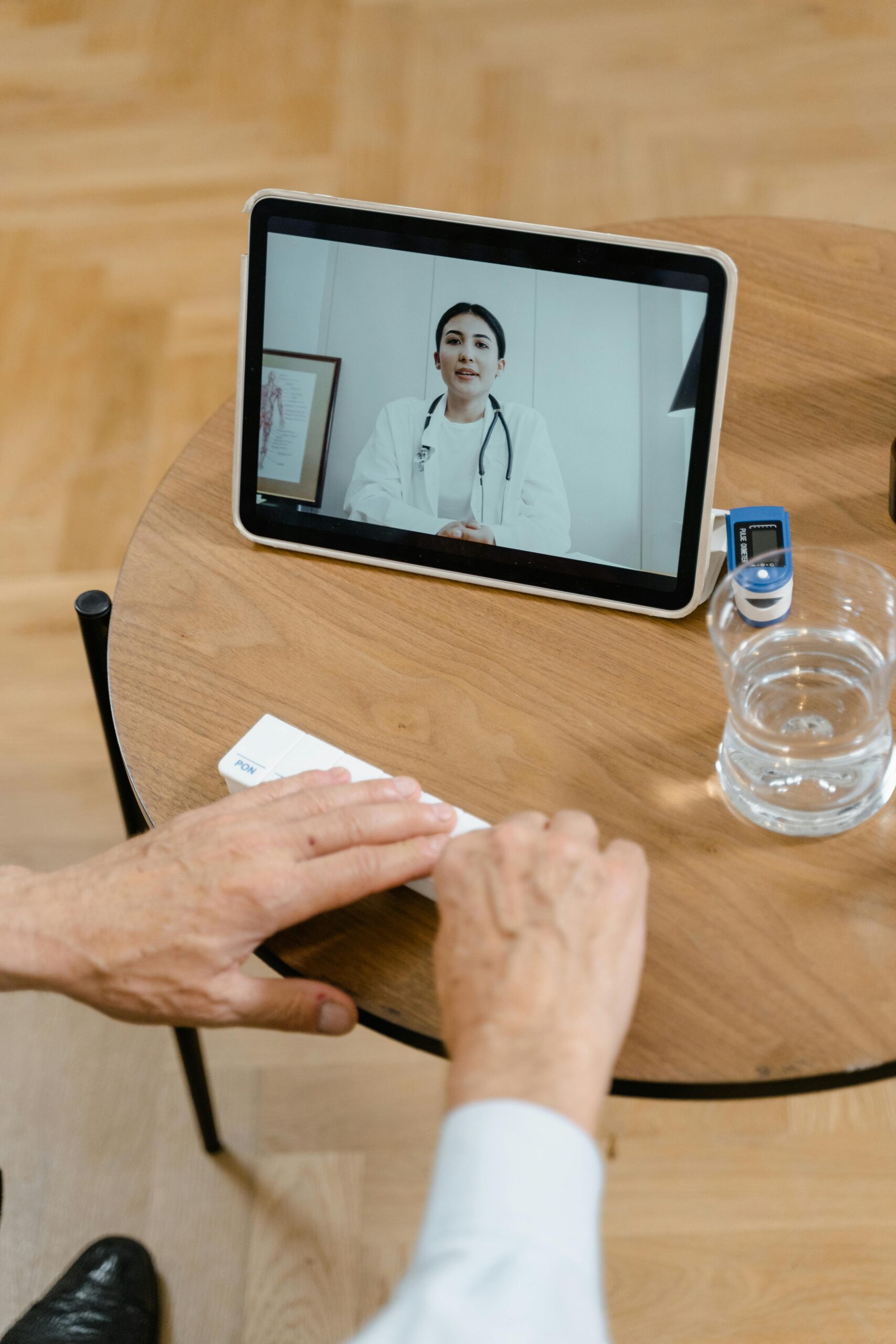Veterans represent a significant portion of New Mexico’s population, with many having served in conflicts across the globe. Despite their service, many veterans face challenges in accessing healthcare, particularly those living in rural areas or dealing with specific service-related health issues. Telehealth for veterans has emerged as a vital resource in addressing these challenges, providing veterans with the healthcare services they need without the barriers of distance and accessibility. This blog explores how telehealth is enhancing healthcare access for veterans in New Mexico, focusing on the unique benefits it offers and the impact it has on their well-being.
Table of Contents
ToggleThe Veteran Population in New Mexico
New Mexico is home to approximately 150,000 veterans, many of whom live in rural or semi-rural areas. The state’s veteran population is diverse, including individuals from various branches of the military, different service eras, and a wide range of ages. This diversity means that veterans have a broad spectrum of healthcare needs, from managing chronic conditions and mental health issues to accessing specialty care for service-related injuries.
Veterans often face unique healthcare challenges, such as:
- Distance from VA Facilities: Many veterans in New Mexico live far from Veterans Affairs (VA) facilities, making it difficult to access care without significant travel.
- Mental Health Needs: Veterans are more likely to experience mental health issues such as PTSD, depression, and anxiety, requiring specialized care that may not be readily available in all areas.
- Service-Related Injuries: Veterans may suffer from chronic pain, mobility issues, or other service-related injuries that necessitate ongoing medical attention.
Telehealth offers a solution by providing veterans with access to healthcare services from the comfort of their homes, reducing the need for travel and ensuring they receive the care they deserve.
The Role of Telehealth in Veteran Care
Telehealth for veterans has become an essential tool in delivering healthcare to veterans in New Mexico, offering several key benefits:
- Increased Access to VA Services
- Remote Consultations: Telehealth enables veterans to connect with VA healthcare providers without the need to travel long distances. This is particularly beneficial for those living in remote areas where the nearest VA facility may be hours away.
- Specialty Care Access: Through telehealth, veterans can access specialty services such as mental health care, pain management, and physical therapy that may not be available locally.
- Mental Health Support
- Addressing PTSD and Depression: Veterans are at higher risk for mental health issues, including PTSD, depression, and anxiety. Telehealth provides a platform for regular counseling and therapy sessions, helping veterans manage these conditions effectively.
- Support Groups: Telehealth also facilitates virtual support groups, allowing veterans to connect with peers who share similar experiences. This peer support can be invaluable in managing mental health challenges.
- Chronic Disease Management
- Ongoing Monitoring: Veterans with chronic conditions such as diabetes, heart disease, or chronic pain can use telehealth for regular check-ins with healthcare providers. This ensures their conditions are managed effectively, reducing the risk of complications.
- Medication Management: Telehealth allows for the remote management of medications, including adjustments to prescriptions and monitoring for side effects, ensuring veterans receive the most appropriate treatment.
- Convenience and Flexibility
- Reduced Travel and Wait Times: For veterans with mobility issues or those living in rural areas, telehealth eliminates the need for travel and reduces the time spent waiting for appointments. This makes it easier for veterans to receive the care they need without the added stress of logistics.
- Family and Caregiver Involvement: Telehealth allows family members and caregivers to participate in consultations, ensuring that veterans have support during medical appointments and that important information is communicated effectively.
Challenges in Implementing Telehealth for Veterans
While telehealth for veterans offers numerous benefits, there are challenges that must be addressed to ensure its successful implementation:
- Technology Barriers
- Digital Literacy: Some veterans may not be familiar with using technology, which can be a barrier to accessing telehealth services. Providing education and support on how to use telehealth platforms is essential to overcoming this challenge.
- User-Friendly Platforms: Telehealth providers should focus on creating platforms that are easy for veterans to navigate, with clear instructions and customer support available to assist with any technical issues.
- Internet Access
- Broadband Availability: Reliable internet access is crucial for telehealth services, yet many rural areas in New Mexico still lack adequate broadband infrastructure. Efforts to expand broadband access are vital to ensuring that all veterans can benefit from telehealth.
- Alternative Solutions: In areas where broadband access is limited, telephone-based consultations or mobile clinics equipped with telehealth technology can be offered to ensure that veterans still have access to healthcare services.
- Privacy and Security
- Protecting Patient Data: Veterans may have concerns about the privacy and security of their health information when using telehealth services. Telehealth providers must prioritize data protection and ensure that all communications are secure and compliant with regulations such as the Health Insurance Portability and Accountability Act (HIPAA).
Telehealth Success Stories for Veterans
The impact of telehealth on veteran care in New Mexico can be seen in numerous success stories:
- Remote PTSD Treatment: In rural areas of Northern New Mexico, veterans suffering from PTSD have been able to access regular therapy sessions through telehealth, leading to significant improvements in their mental health and overall quality of life.
- Chronic Pain Management: Veterans in Southern New Mexico dealing with chronic pain have benefited from telehealth services that include remote consultations with pain specialists and ongoing monitoring of their condition, resulting in better pain management and reduced reliance on opioid medications.
- Virtual Support Groups: Veterans in Central New Mexico have participated in virtual support groups for those dealing with depression and anxiety. These groups, facilitated through telehealth, provide a sense of community and shared understanding that has been instrumental in their mental health recovery.
The Future of Telehealth for Veterans in New Mexico
The future of telehealth for veterans in New Mexico is promising, with ongoing advancements in technology and increasing adoption of telehealth services. Key areas of focus for the future include:
- Expanding Access
- Broadband Infrastructure: Continued investment in expanding broadband access across New Mexico is essential to ensuring that all veterans can benefit from telehealth services, particularly in the state’s most remote areas.
- Mobile Health Units: The deployment of mobile health units equipped with telehealth technology can bring healthcare services directly to veterans in rural areas, further expanding access to care.
- Enhancing Technology
- Wearable Devices: Advances in wearable technology will allow for more comprehensive remote monitoring of veterans’ health, providing real-time data to healthcare providers and enabling more proactive care.
- Artificial Intelligence (AI): AI-driven telehealth platforms can offer personalized care recommendations, assist with medication management, and predict potential health issues before they arise, enhancing the quality of care for veterans.
- Integrating Telehealth with In-Person Care
- Hybrid Care Models: The future of veteran care will likely involve a hybrid model that combines telehealth with in-person visits. This approach ensures that veterans receive both the convenience of virtual care and the hands-on medical attention they need when necessary.
Conclusion
Telehealth for veterans is transforming healthcare for veterans in New Mexico, offering a solution to the many challenges faced by those who have served our country. By increasing access to VA services, improving the management of chronic conditions, and providing mental health support, telehealth is enhancing the quality of life for veterans across the state. As technology continues to evolve and access expands, the impact of telehealth on veteran care in New Mexico will only grow, ensuring that those who served can enjoy better health and well-being.




